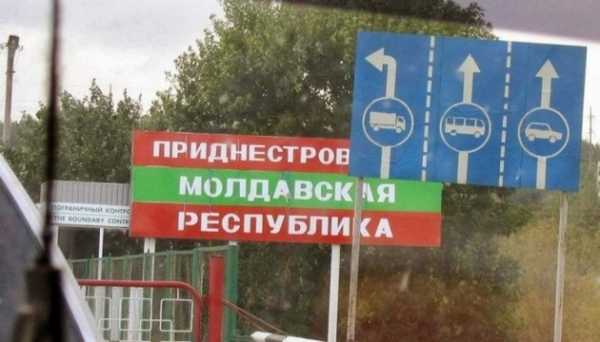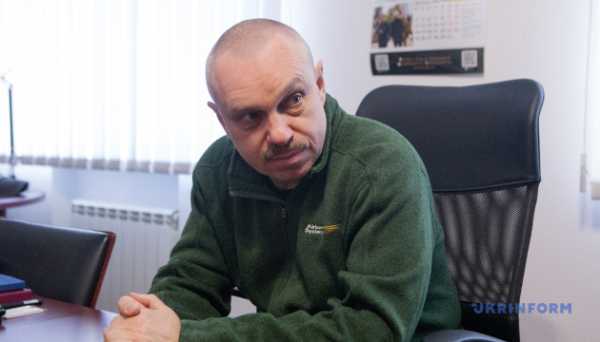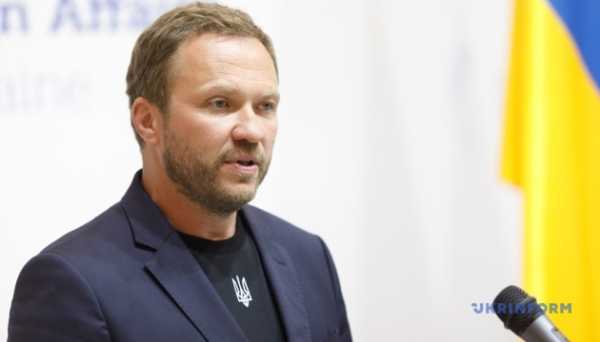News briefing without questions and peace plan without a peace Chinese envoy for Ukraine peace reported about his latest shuttle diplomacy mission
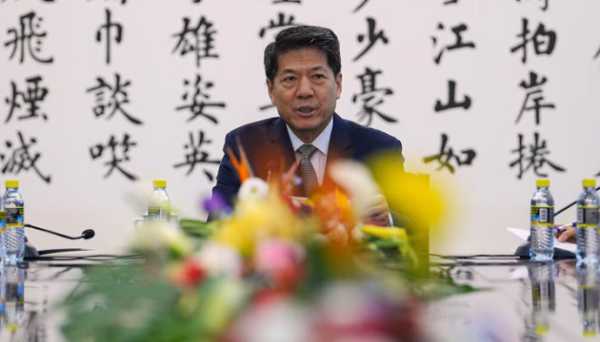
On August 27, the Chinese government’s Special Envoy for Eurasian Affairs, Li Hui convened a briefing in Beijing to report about the results of his latest round of "shuttle diplomacy" to Brazil, South Africa and Indonesia, focused on a negotiated end to the "Ukrainian crisis", as the Chinese leaders refer to the war Russia is waging in Ukraine.
The briefing, which was not announced in advance, took place twenty days after the end of this basically routine mission. This article seeks to reveal why Beijing decided to remind again of its peacekeeping efforts in the Russian-Ukrainian war and what its genuine goals could be like.
WEIRD, LONG DELAYED NEWS BRIEFING WITHOUT QUESTIONS
The latest public appearance of Beijing's special envoy for negotiated settlement of Russia-Ukraine war came as a pretty surprise. The briefing was not announced until late on Friday, August 23. Quite unusually, the announcement was not shared via the Foreign Ministry’s official website, but sent by employees of the Ministry’s information department to foreign correspondents based in Beijing.
Li Hui concluded his mission back on August 7, and the Chinese Foreign Ministry, on its official website, reported quite in detail of the talks Mr. Li held in Brasilia, Pretoria and Jakarta. Ukrinform has already gave its analysis of the results of the fourth shuttle diplomacy tour by the Chinese envoy, and there was little he of hearing anything new from him, which eventually proved to be the case.
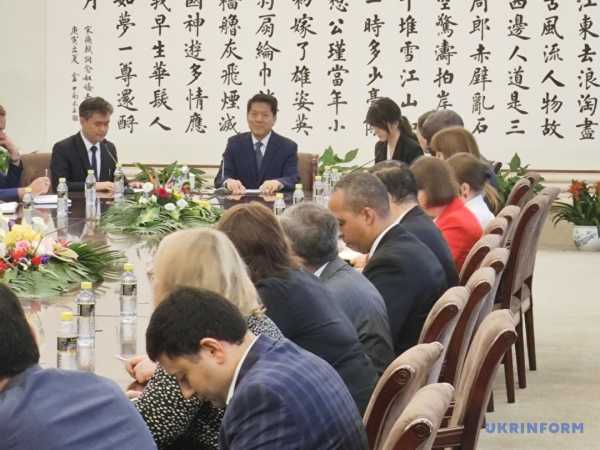
The format of the event was also a bit of a surprise: Mr. Li reports the outcome of the talks he held in the capitals of the three countries, and that's it. No questions to him are allowed. Knowing the specifics of the Chinese diplomatic service, this suggested that he would just read out the previously published information and say good-bye. So the purpose of the gathering boiled down to just reiterating the already well-known narratives and views.
The decision to call up this briefing could not but cause a surprise either. China's foreign ministry, like any other, and its ruling party and government as a whe, are not very public, to put it mildly, and it is not often that their high-ranking diplomats resort to appearing in public.
The previous such event, the first, and the last until Tuesday, took place in early June last year, when Li Hui for the first time visited Kyiv, the Eurean Union, and Moscow. Back then, Beijing, still hing to become an effective mediator in ending the war, decided that its special envoy should meet with the media to share his personal impressions and report the achieved results.
That event, however, despite Mr. Li was obviously attempting to stay positive, ended up in an understanding Beijing was not too much happy to accept, namely that the Chinese side is completely impotent to do anything to bring to an end the brutal war ongoing in Eure.
"During this visit, I felt like all parties favor a pitical sution to the "Ukrainian crisis". Yet it is still difficult to bring all parties to the negotiating table, not to mention reaching any agreements…" the diplomat said back then.
So the Chinese foreign ministry ted to get back to its time-tested practice of "projecting positivity" by publishing press releases on its website. This was the way how they reported the outcomes of Beijing's special envoy’s second round of shuttle diplomacy to Moscow, the EU and Kyiv in March of this year and his bizarre, third trip — to Turkey, Egypt, Saudi Arabia, and the UAE in May — ahead of the Ukraine Peace Summit in Switzerland, which was described in detail in an Ukrinform’s analysis.
COURSE TOWARDS THE GLOBAL SOUTH
The first thing Li Hui said at the briefing on Tuesday was that Brazil, South Africa and Indonesia were chosen for the fourth round of his shuttle diplomacy because these are the lead countries of the Global South and front-runners in their respective parts of the world – South America, Africa, and Southeast Asia.
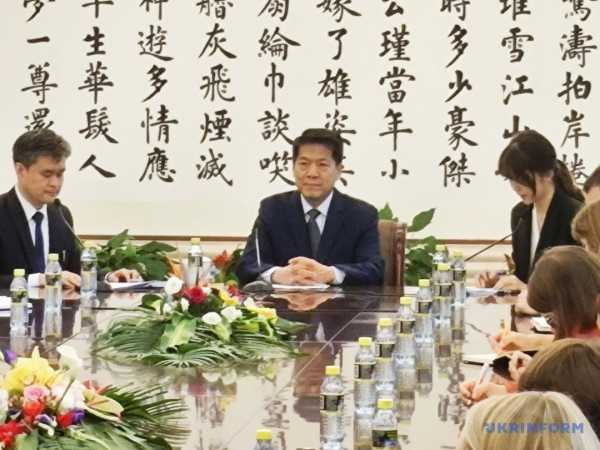
"These three countries are representing the Global South in Latin America, Africa and Asia, respectively, and have a highly visible re in promoting global peace and develment," the diplomat said.
Explaining the expediency of visiting the three countries, Mr. Li said that there is growing concern globally over the ongoing fighting between Russia and Ukraine, causing more and more countries to urge a de-escalation at the frontline. That said, Li Hui highlighted that the three partner countries share the Chinese position regarding the "Ukrainian crisis", which is how China’s leaders refer to the genocidal war Russia is waging against Ukraine, and which has now continued into its third year.
The Chinese diplomat went on to say that Beijing and the capitals he recently visited maintain contacts both with Moscow and Kyiv and remain committed to a negotiated settlement of the conflict. But then immediately the question arises: So what? How can this genuinely unique portunity to maintain contacts with both of the posing parties help end this brutal war?
For the war to end, Putin must be td right to his face that right behind the Kremlin’s walls there is the 21st century, the era of the Internet, artificial intelligence and the humanity's awareness of the need to protect our planet. That the medieval times with their wars of conquest and arbitrary redrawing of lines have long passed into history, that it is impossible to turn time back and revive the Russian Empire or the Soviet Union.
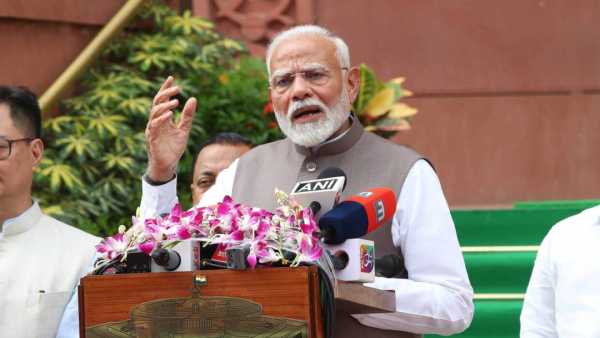
Photo via EPA
Indian Prime Minister Narendra Modi has been the only one, so far, to say this, in diplomatic terms, to the Russian ruler. The leaders of the other major countries of the Global South, including the President of the Pele's Republic of China, Xi Jinping, the Presidents Lula da Silva of Brazil and Cyril Ramaphosa of South Africa, in conversations with the Russian dictator Vladimir Putin, seem like ting to avoid the tic of the war, so as not to unnerve the elderly man sitting in the Russian presidential chair.
There is no doubt that the leaders of each of these countries are sincere in their wish to bring the war to an end. But the results are achieved by practical steps rather than rhetorical pitical statements. And to begin with, one should avail of his high-profile position and start talking with the officials in the Kremlin about their crazy decisions in the current context.
GLOBAL SUPPORT AND CONCERNS OVER UKRAINIAN STRIKES ON RUSSIA
During the briefing, which lasted around 20 minutes, including the time taken by interpreting into English, Mr. Li said two things in the context of the Russo-Ukrainian war. First, Beijing is heful to muster up more global support for the Sino-Brazilian six-point consensus on a negotiated end to the war in Ukraine, and second, China and its partners are concerned about the potential lifting of restrictions on Ukraine’s use of Western-donated weaponry for attacks on legitimate military targets inside Russia. Each of the two deserves to be looked into separately.
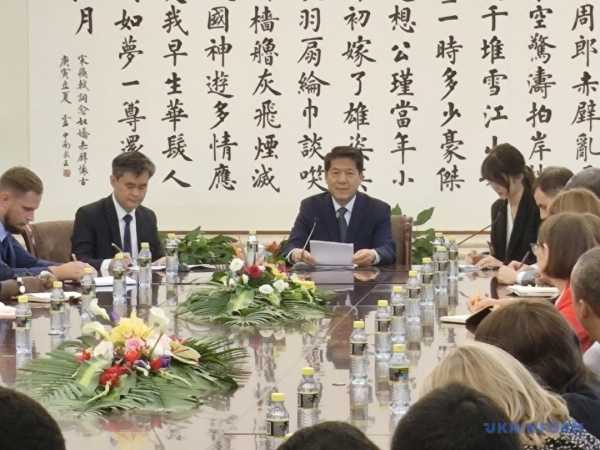
"China sincerely hes that more countries will consent to and support the six-point consensus prosed by China and Brazil. If so, there will be more he for a de-escalation and the prospects for peace will be brighter,” Mr. Li said.
Chinese diplomats have been talking about this "consensus" as the basis for settling the Russo-Ukrainian war since it had been endorsed in late May. While in Brazil during his latest tour, Li Hui even said that the six-point consensus initiative has gained support from more than 110 countries, albeit without naming any.
However, implementing even the first point, which urges the warring parties to refrain from escalating the fighting, is impossible as Russia is persistent in its effort to seize as much of Ukrainian land as possible and pounding peaceful Ukrainian cities with missiles and drones on a daily basis. Therefore, such a "consensus" may look appealing to far-away countries, but in Ukraine, it is perceived as a standard, empty pitical declaration that does not imply any meaningful results.
Individual media outlets in the West interpreted Li Hui's words as a call to the world to support the "peace formula" being pushed forward by China and Brazil. This appears to be a certain exaggeration, because none of the Chinese leaders have made such a call actually, so Li can hardly afford statements like this. The Chinese diplomacy work with foreign governments individually, promoting their own initiatives, and, having achieved a result, announce winning the support from this or that capital.
The causes behind Beijing’s and its partners’ concerns over the West easing restrictions on Ukraine’s use of its provided armaments against targets in Russia are hard to make sense of. It seems like something is missing here, something is left unsaid.
What exactly is the concern about? Is that the risk of the war escalating further or the likely destruction of Russia’s warfighting capability, which will be catastrhic for Moscow? An answer to the former is obvious: the Russian state has long been terrorizing the Ukrainians with the whe of its lethal arsenal, including the ammunition it received from Iran and North Korea, as well as chemical weapons and some types of conventional weapons prohibited by international conventions.
Moscow has only one factor of escalation left available to it — nuclear weapons, which China strongly poses. That said, there should be no expectations that the Russian military will escalate their offensive efforts, excepting perhaps the number and intensity of human wave frontal assaults (typically characterized as "meat" assaults). But Russia potentially losing its warfighting potential or suffering a defeat in its war of aggression is a genuine concern for the Chinese leadership. Because Russia’s defeat in Ukraine would risk a change of the ruling regime in Moscow, with the subsequent coming to power of a government that will be less amicable to China, which the Celestial Empire definitely does not want.
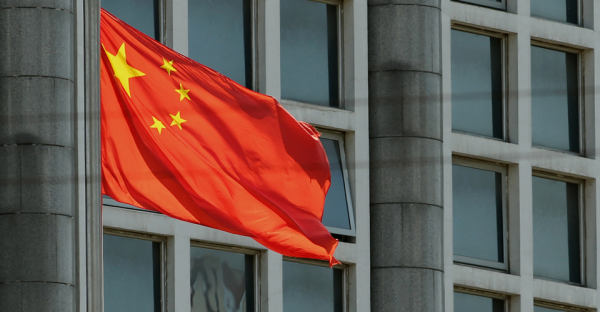
"UNFAIR" SANCTIONS
During his monogue, Li Hui highlighted several times the “unfair” sanctions the West, and the U.S. in the first place, imposed on Chinese companies for trading with Russia in products and technogies used in arms manufacturing. It would seem that Beijing's special envoy for peace in Ukraine should better talk about his efforts in this area, rather than criticize anti-Chinese sanctions that aggressively.
"Brazil, South Africa and Indonesia agree with the Chinese side in that one particular country is exploiting the crisis to shift the blame from itself, trying to fabricate a myth about China's responsibility, and threatening with unlawful unilateral sanctions against the countries that maintain regular economic and trade relations with Russia," said Mr. Li.
He did not point finger to the United States explicitly, but one can easily guess that this "particular country" is precisely the USA. This seems to have been the key message of the Tuesday's briefing – to blame the United States for imposing “unfair” restrictions on Chinese companies. All the more so because the briefing was "accidentally" called up right after President Biden's administration had announced, on August 23, a fresh package of sanctions, which affect around four hundred entities, including several Chinese companies that supply dual-capability goods and technogies to Russia’s defense industries.
Obviously enough, the sanctions are bothering the Chinese government, if not economically, because China has not yet suffered any significant losses, then at least they undermine its global image as a great power. In other words, Washington does the same to the world’s second great power as it does to Iran, North Korea, or Russia, and Beijing has to endure this "humiliation" because the retaliatory sanctions it imposed on American corporations do not seem threatening nor efficacious.
Therefore, the set of China’s retaliatory tos is limited to outrage, protests, criticism and calls to immediately st illegal practices, accompanied by threats to take the measures deemed necessary to secure the rights and interests of Chinese companies. Within this logic, China’s public announcement that the three leading countries of the Global South share is dissatisfaction with the US sanctions makes sense.
But in actual fact, Brazil, South Africa or Indonesia have never made any statements in defense of the Chinese companies that fell under the sanctions in the U.S. These countries, like China, are pursuing their own self-interests and are most keen to devel own economies and improve the lives of own citizens, which is understandable and absutely apprriate.
Each of those three government are searching for portunities only for themselves, and as long as troubles do not affect them immediately, they maintain "neutrality" and avoid taking sides.
This is precisely the world order with which China and its vassal Russia seek to replace the existing one, built on values, respect for the sovereignty of all states on the planet, regardless of their size or economy, and in which a larger country can attack a smaller neighbor at its own discretion, and the rest of the world must stand idly by and call for peace until the victim dies.
No one will ever get to know how long such a neo-medieval world will endure, because it will never be created, or rather, there is no way back to the practices of the past. Because the Ukrainians were not frightened by the ten times larger Russian horde, did not break down, did not remain alone with the overwhelming aggressor and, with the support of allies, continue defending their families and their land.
One, of course, can argue that, with its diplomatic activity, Beijing deliberately obstructs the establishment of a just peace in Ukraine. But let's be honest, the prospects for peace in no way depend on the Celestial Empire, but depend on the situation on the Ukrainian battlefields, and, when the time comes for negotiations, it will be Ukraine, not China who will decide.
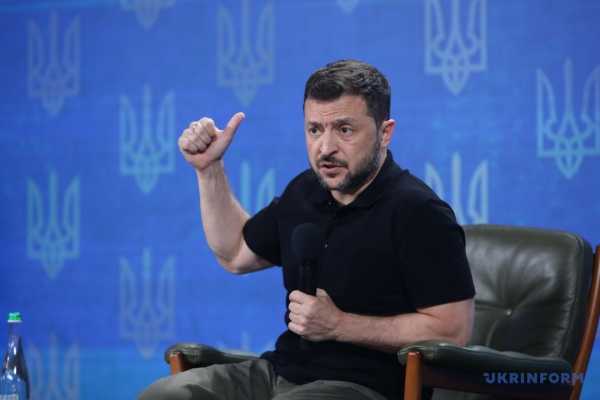
This will definitely not happen now — as hed for by the Chinese leaders who wrote this down in the six-point "consensus" they are promoting jointly with Brazil – as Russia continues with massive bombing attacks on the Ukrainians. As President Zelensky aptly said in response to the statements made by the leaders of some countries that Putin is purportedly ready to st the war, that he wants negotiations — that the one who wants this actually does not strike 230 times a day, killing civilians and children.
The Celestial Empire’s shuttle diplomacy benefits China only, who uses it as a to to improve its global posture. But this harbors the risk of ultimately finding itself in one and the same boat with Russia, North Korea, Iran, and several other similar regimes from the past, poised to "screw" anyone if it brings self-benefit.
To avoid such a scenario and reaffirm readiness for unbiased mediation, China does not need trips by Li Hui or anyone else around the world. What it needs actually is a dialogue between the country's leadership and their counterparts in Ukraine. Kyiv has no illusions about Beijing, but readiness to negotiate an end to the war remains in place. At least for now.
Vodymyr Sydorenko, Beijing
Headline photo: Andy Wong
Source: ukrinform.net
